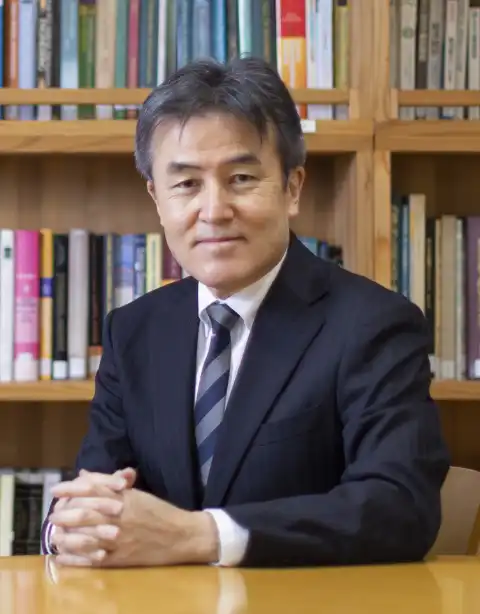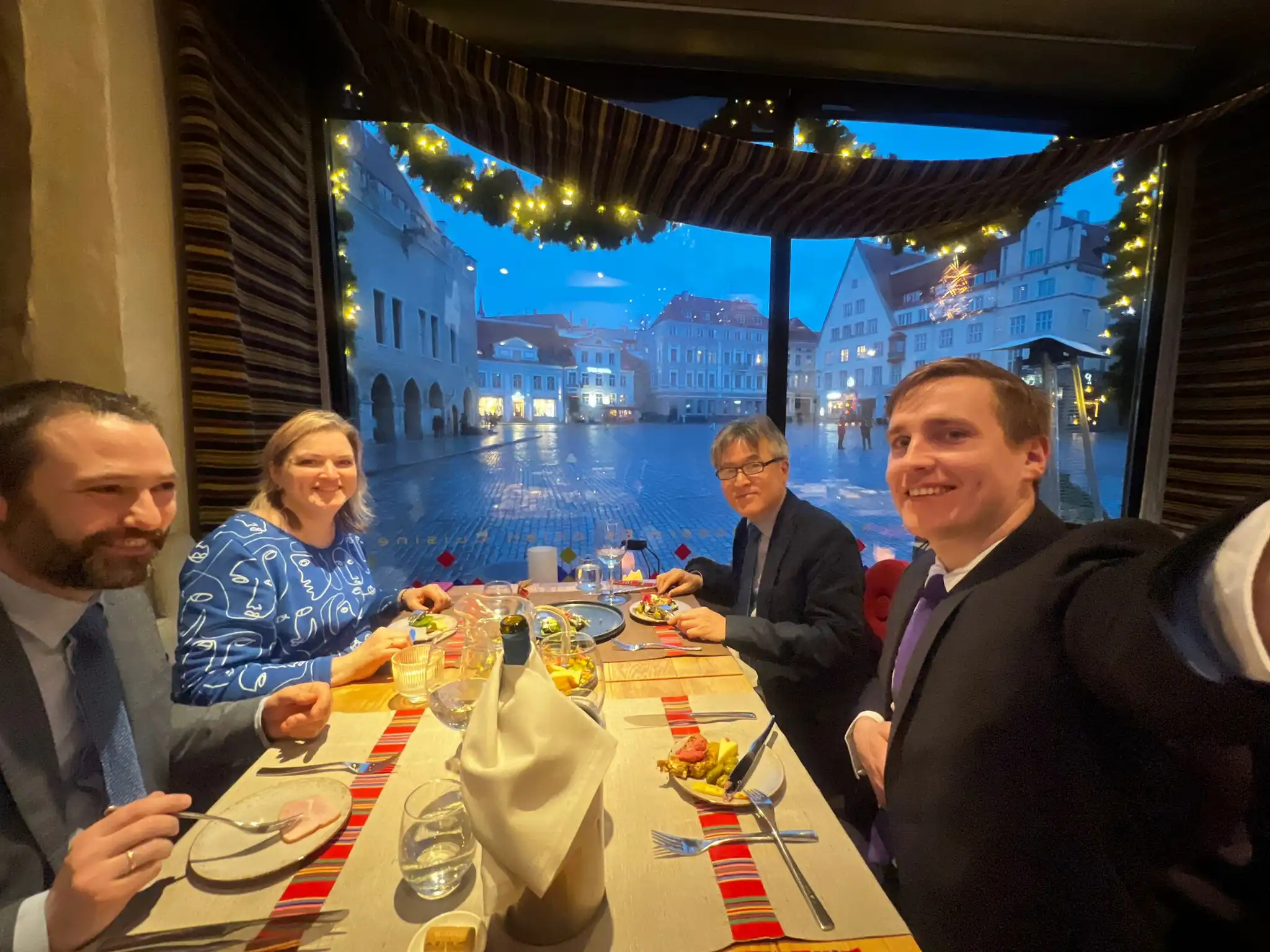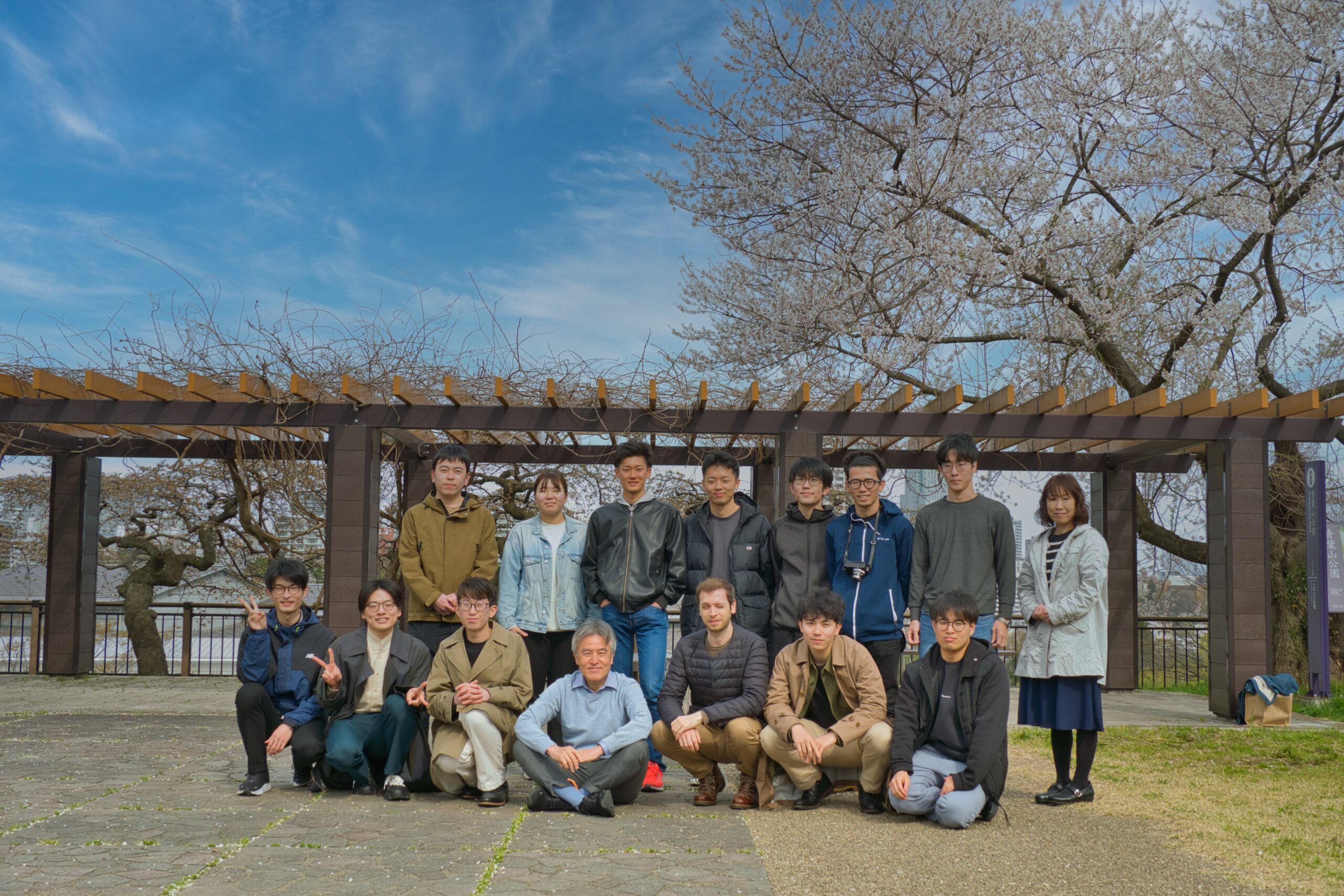


(C) 2020 Ikegami Hayato
What does it mean to be carbon neutral?
A comfortable, well-insulated home, an emission-free car, and a drastic reduction in utility bills.
When we go carbon neutral, many things improve and our lives become richer. We will move from fossil fuels to renewable energy, and climate change will gently converge.
So, after all, carbon neutrality is good for you and good for the planet.
View more
Many countries, regions, and companies around the world are now shifting to "decarbonization. Japan is no exception. About 30 years ago, when climate change countermeasures were just getting underway, Japan was one of the first countries to engage in research on energy design, including smart cities and industrial ecology.
The goal is to build a system for a decarbonized and sustainable energy society that is both environmentally and economically compatible, as well as technologically viable. Myp wide-ranging research, which begins with research and analysis and extends to design, development, and presentation (recommendations to society), requires a high level of perspective and a broad viewpoint.
A favorite word is "serendipity. It refers to "an unintentional, unexpected, and fortuitous event or experience," but it also encompasses the meaning of "the ability to use one's own wisdom to look at what others do not notice and discover something useful. It also encompasses the meaning of "the ability to look at what others are not aware of and discover what is beneficial through one's own wisdom. Nearly 30 years ago, a mentor of mine inspired me to "find my own island," and I have been carving out new waters away from the mainstream. His approach to energy issues is based on the concept of "energy efficiency," or the idea of making life richer and more comfortable (maximizing value) by eliminating waste and using energy efficiently, and is more positive than energy saving. This is the current trend toward decarbonization.
Putting theory into practice. Supporting the construction of sustainable energy systems for new community development in disaster-affected areas. We guide discussions on today's issues by listening to the opinions of local residents, while including the background of the local community. Sharing a framework for the future is a difficult task.
In the future, countries and organizations that have achieved the creation of truly green systems will play a leading role. Thinking globally and acting within communities, we hope to attract the feasibility of a carbon-neutral world.
An essential function of a decarbonized drive is energy data analysis, or an energy car navigation system that combines high spatial and temporal resolution. Higher spatial resolution will facilitate the recharging and discharging of electric vehicles and inter-regional energy exchange (peer-to-peer P2P). If minute-by-minute energy data with high temporal resolution is added to this, it will be possible to design systems that rationally and optimally combine fluctuating renewable energy sources and consumers. Successful data analysis, system design, and application will be the key players in driving the next generation of energy projects and a carbon-neutral society.
Engage with local communities and implement the theory. The "islands" we have discovered are now connected to a clear direction of decarbonization and are aiming at the horizon of a new energy system.
Reprinted in part from
https://www.most.tohoku.ac.jp/crosslink/nakata/ (C) 2020 Michiyo Takahashi.
Profile

(C) 2020 Ikegami Hayato
Toshihiko Nakata
Researcher, educator, social entrepreneur
Emphasis on collaboration across business, government, education, and community
Specializes in data driven designing for a zero-CO2 society.
【Selected awards】
The Japan Society of Mechanical Engineers - JSME Medal for Distinguished Engineers, the Japan Institute of Energy - Academic Award and Best Paper Awards, Society of Automotive Engineers of Japan - Technical Division Contribution Award, and the American Society of Mechanical Engineers (IGTI) Paper Award, etc.
Courses
- Heat Transfer (Tohoku University, Dept. Mechanical Engineering)
- Carbon Neutral Fundamentals (Tohoku University, Dept. Management Science & Technology)
- Carbon Neutral Applications (Tohoku University, Dept. Management Science & Technology)
- Seminars in Social System Design (Tohoku University, Dept. Management Science & Technology)
- Introduction to Management Science and Technology (Tohoku University, Dept. Management Science & Technology)
- Regional Future Studies (Tohoku Institute of Technology)
- Advanced Mechanical Engineering (Nihon University)
- Creating a sustainable energy society (The Open University of Japan)
Selected affliation
- 2023- Miyako City Decarbonized Community Development Council
- 2021- Zero Carbon Vision Expert Meeting, chairman, Okuma Town
- 2016- Member of energy statistics committee, Ministry of Economy, Trade and Industry
- 2016- Director, Centre for Environmental Creation, Fukushima
- 2015- Chair, Environmental Council, Fukushima city
- 2013-2021 Reconstruction Agency, Member of the Reconstruction Promotion Committee
Education
- 1993 Dr. Eng. Tohoku University
- 1983-1985 M. Eng. at Tohoku University
- 1979-1983 B. Eng. At Tohoku University
Professional career
- 2006- Tohoku University, Professor
- 1993-2006 Tohoku University, Associate Professor
- 1997-1998 Fulbright Scholar, Lawrence Livermore National Laboratory, USA.
- 1985-1993 Central research Institute of Electric Power Industry, Researcher
Heat Transfer
https://qsl.cds.tohoku.ac.jp/qsl/syllabus/display/tb15081
【Students】
Tohoku University, Dept. Mechanical Engineering, B3
【Outline】
To understand the mechanism of heat transfer, which is the basis for designing heat energy equipment in mechanical engineering, chemical engineering, electrical and electronic engineering, and environmental engineering. Students will learn the basic equations and mathematical solutions for heat transfer mechanisms of different forms and their applications to industrial equipment, focusing on heat energy transfer phenomena involving temperature differences. Students learn formulation and solution methods of physical phenomena and dimensionless numbers for the three basic forms of heat transfer: heat conduction, convection, and radiation. Learn the application methods to the design of engineering equipment such as heating and cooling equipment, air-conditioning equipment, and heat exchangers.
【Textbooks】
『Heat Transfer Engineering with Examples』 T. Hitara, M. Tanaka and Y. Hada, Morikita Publishing Co. (2019) in Japanese
https://www.morikita.co.jp/books/mid/067272
『Foundations of heat transfer』 Frank P. Incropera, Wiley (2013)
https://books.google.co.jp/books/about/Foundations_of_Heat_Transfer.html?id=td-juAAACAAJ&redir_esc=y
Carbon Neutral Fundamentals
https://qsl.cds.tohoku.ac.jp/qsl/syllabus/display/tm80014100
【Students】
Tohoku University, Dept. Management Science & Technology, M1
【Outline】
The course will explain how to achieve 100% clean renewable energy in a short period of time with currently available technologies. You will also learn how to transition from fossil fuels to a carbon neutral society, as well as generation, storage, and transmission technologies. It provides the scientific basis for the Green New Deal Act and for municipalities, states, and countries to transition to 100% clean and renewable energy. Topics presented in this course provide real-world examples of successful transitions to 100% renewable energy. The exercises and end-of-chapter questions are engaging and include a variety of disciplines. The course is open to students from all disciplines, including environmental engineering, environmental science, earth science, geography, energy and environmental policy, and economics.
【Textbook】
『100% Clean, Renewable Energy and Storage for Everything』 Mark Z. Jacobson, Cambridge University Press (2020)
https://www.cambridge.org/jp/academic/subjects/earth-and-environmental-science/environmental-science/100-clean-renewable-energy-and-storage-everything?format=PB
【Reference materials】
『Statistical Review of World Energy』British Petroleum (2023)
https://www.bp.com/en/global/corporate/energy-economics/statistical-review-of-world-energy.html
『Engineering Economic Analysis』Oxford University Press (2019)
https://global.oup.com/ushe/product/engineering-economic-analysis-9780190063467?cc=us&lang=en&
Carbon Neutral Applications
https://qsl.cds.tohoku.ac.jp/qsl/syllabus/display/td80012200
【Students】
Tohoku University, Dept. Management Science & Technology, D1
【Outline】
Students will learn how to create a carbon neutral society for the year 2050. Based on an understanding of thermal engineering and energy conversion technologies, students will learn methods for analyzing energy systems, designing, and evaluating system performance, including social, economic, and environmental aspects. Students will consider various factors related to energy, such as technological proficiency, innovation, security, and sustainability for the future.
【Reference materials】
『Shell Scenarios』Shell (2023)
https://www.shell.com/energy-and-innovation/the-energy-future/scenarios.html
『U.S. National Clean Hydrogen Strategy and Roadmap』US-DOE, Department of Energy (2023)
https://www.hydrogen.energy.gov/library/roadmaps-vision/clean-hydrogen-strategy-roadmap
『Assumptions to the Annual Energy Outlook 2023』 US-EIA, Energy Information Administration (2023)
https://www.eia.gov/outlooks/aeo/assumptions/
『Global Atlas for Renewable Energy』IRENA – International Renewable Energy Agency (2023)
https://globalatlas.irena.org/workspace
Treatise
Energy economic models
- Induced technological change and the timing of public R&D investment in the Japanese electricity sector considering a two-factor learning curve
Clean Technologies and Environmental Policy, 2017
View more
Energy economic models
- Induced technological change and the timing of public R&D investment in the Japanese electricity sector considering a two-factor learning curve
Clean Technologies and Environmental Policy, 2017 - Development of an energy-economic model with endogenous technological progress and feasibility study of CCS systems
Heat Transfer - Asian Research, 2014 - Application of energy system models for designing a low-carbon society
Progress in Energy and Combustion Science, 2011 - Modeling technological learning and its application for clean coal technologies in Japan
Applied Energy, 2011 - Shift to a low carbon society through energy systems design
Science China Technological Sciences, 2010 - Energy-economic models and the environment
Progress in Energy and Combustion Science, 2004 - Analysis of the impacts of nuclear phase-out on energy systems in Japan
Energy, 2002 - Analysis of the impacts of carbon taxes on energy systems in Japan
Energy Policy, 2001
Renewable energy
- Directed recurrence networks for the analysis of nonlinear and complex dynamical systems
Chaos, 2025
With Remi Delage
View more
Renewable energy
- Directed recurrence networks for the analysis of nonlinear and complex dynamical systems
Chaos, 2025
With Remi Delage - An algorithm for simplified recurrence analysis
Chaos, 2024
With Remi Delage - The role of regional renewable energy integration in electricity decarbonization—A case study of Japan
Applied Energy, 2024 - Machine learning application for estimating electricity demand by municipality
Energy, 2024
With Remi Delage - Directed recurrence networks
Chaos, 2023
With Remi Delage - Cluster Analysis of Energy Consumption Mix in the Japanese Residential Sector
Smart Energy, 2023
With Remi Delage - A bottom-up approach for recurrence detection based on sampling distance
Chaos, 2023
With Remi Delage - Systematic effects of flexible power-to-X operation in a renewable energy system - A case study from Japan
Energy Conversion and Management: X, 2023 - A variable threshold for recurrence based on local attractor density
Chaos, 2022
With Remi Delage - Multivariate Empirical Mode Decomposition and Recurrence Quantification for the Multiscale, Spatiotemporal Analysis of Electricity Demand—A Case Study of Japan
Energies, 2022
With Remi Delage - Optimal design and analysis of sector-coupled energy system in Northeast Japan
Energies, 2021 - Spatial–temporal estimation and analysis of Japan onshore and offshore wind energy potential
Energies, 2021 - Regional spatial analysis of the offshore wind potential in Japan
Energies, 2020
Automobile
- Analysis of the impact of vehicle lightweighting on recycling benefits considering life cycle energy reductions
Resources, Conservation and Recycling, 2021
View more
Automobile
- Analysis of the impact of vehicle lightweighting on recycling benefits considering life cycle energy reductions
Resources, Conservation and Recycling, 2021 - Energy consumption analysis for vehicle production through a material flow approach
Energies, 2020 - Recoverability analysis of critical materials from electric vehicle lithium-ion batteries through a dynamic fleet-based approach for Japan
Sustainability, 2020 - Application of energy and CO2 reduction assessments for end-of-life vehicles recycling in Japan
Applied Energy, 2019 - Energy and CO2 Benefit Assessment of Reused Vehicle Parts through a Material Flow Approach
International Journal of Automotive Engineering , 2018 - Techno-economic assessment of lightweight and zero emission vehicles deployment in the passenger car fleet of developing countries
Applied Energy, 2014 - Energy use and CO2 emissions reduction potential in passenger car fleet using zero emission vehicles and lightweight materials
Energy, 2012 - Energy modeling on cleaner vehicles for reducing CO2 emissions in Japan
Journal of Cleaner Production, 2003 - Analysis of the impact of hybrid vehicles on energy systems in Japan
Transportation Research Part D: Transport and Environment, 2000
District heating system
- Nonlinear optimization of biomass fueled combined heat and power boilers in district heating systems in Japan
Clean Technologies and Environmental Policy, 2024
View more
District heating system
- Nonlinear optimization of biomass fueled combined heat and power boilers in district heating systems in Japan
Clean Technologies and Environmental Policy, 2024 - Design and analysis of district heating systems utilizing excess heat in Japan
Energies, 2019 - Cost Assessment of a District Heating System in Northern Japan Using a Geographic Information-Based Mixed Integer Linear Programming Model
Journal of Energy Engineering, 2017 - A feasibility and performance assessment of a low temperature district heating system - A North Japanese case study
Energy, 2016 - A comparative exergy and exergoeconomic analysis of a residential heat supply system paradigm of Japan and local source based district heating system using SPECO (specific exergy cost) method
Energy, 2014
Regional energy
- Quantitative analysis of energy supply and demand structure for regional decarbonization: A case study on Miyako city, Iwate prefecture and the Miyako smart community project
Studies in Regional Science, 2020
View more
Regional energy
- Quantitative analysis of energy supply and demand structure for regional decarbonization: A case study on Miyako city, Iwate prefecture and the Miyako smart community project
Studies in Regional Science, 2020 - Analysis of CO2 emissions reduction potential in secondary production and semi-fabrication of non-ferrous metals
Energy Policy, 2013 - Quantitative analysis of energy-efficiency strategy on CO2 emissions in the residential sector in Japan - Case study of Iwate prefecture
Applied Energy, 2008 - Energy-efficiency strategy for CO2 emissions in a residential sector in Japan
Applied Energy, 2008 - Analysis of the impact of electricity grid interconnection between Korea and Japan - Feasibility study for energy network in Northeast Asia
Energy Policy, 2006 - Design for renewable energy systems with application to rural areas in Japan
Energy Policy, 2005 - Input-output analysis for installing renewable energy systems
Energy and Environment, 2004 - EIMY (Energy In My Yard)-a concept for practical usage of renewable energy from local sources
Geothermics, 2003
Biomass energy
- Analysis of woody biomass utilization for heat, electricity, and CHP in a regional city of Japan
Journal of Cleaner Production, 2021
View more
Biomass energy
- Analysis of woody biomass utilization for heat, electricity, and CHP in a regional city of Japan
Journal of Cleaner Production, 2021 - Rethinking sustainable bioenergy development in Japan: decentralised system supported by local forestry biomass
Sustainability Science, 2020 - Cost and CO2 reduction of biomass co-firing using waste wood biomass in Tohoku region, Japan
Journal of Cleaner Production, 2018 - A novel approach for analyzing the food-energy nexus through on-farm energy generation
Clean Technologies and Environmental Policy, 2017 - Economic ripple effects of bioethanol production in Asean countries: Application of inter-regional input-output analysis
Japan Agricultural Research Quarterly, 2013 - Economic ripple effects of policy coordination on bio-ethanol production and trade in east Asia: Application of international inter-regional input-output analysis
Studies in Regional Science, 2011 - Economic analysis on small-scale forest biomass gasification considering geographical resources distribution and technical characteristics
Biomass and Bioenergy, 2011 - Potentials of GHG reductions from wastewater treatment for the CDM
Science China Technological Sciences, 2011
Developing countries
- The effect of geopolitical factors on local energy system performance: Examining the case of Palestine
Energy Strategy Review, 2025
View more
Developing countries
- The effect of geopolitical factors on local energy system performance: Examining the case of Palestine
Energy Strategy Review, 2025 - Decentralised electricity generation system based on local renewable energy sources in the Honduran rural residential sector
Clean Technologies and Environmental Policy, 2016 - Integration of WTE technologies into the electrical system for low-carbon growth in Venezuela
Renewable Energy, 2016 - Design of decentralized energy systems for rural electrification in developing countries considering regional disparity
Applied Energy, 2012 - Assessment of energy utilization in Iran’s industrial sector using energy and exergy analysis method
Applied Thermal Engineering, 2012 - Design of an optimal waste utilization system: A case study in St. Petersburg, Russia
Sustainability, 2011 - Multi-objective assessment of rural electrification in remote areas with poverty considerations
Energy Policy, 2009 - Analysis of the market penetration of clean coal technologies and its impacts in China’s electricity sector
Energy Policy, 2009 - Assessment of access to electricity and the socio-economic impacts in rural areas of developing countries
Energy Policy, 2008 - Renewable technologies for rural electrification in Colombia: A multiple objective approach
International Journal of Energy Sector Management, 2008 - Analysis of the energy access improvement and its socio-economic impacts in rural areas of developing countries
Ecological Economics, 2007 - CO2 emissions mitigation policies and their effects on the Thailand energy system
International Journal of Global Energy Issues, 2007
Gas turbine combustor
- Reaction of fuel NOx formation for gas turbine conditions
Journal of Engineering for Gas Turbines and Power, 1998
View more
Gas turbine combustor
- Reaction of fuel NOx formation for gas turbine conditions
Journal of Engineering for Gas Turbines and Power, 1998 - A study on low NOx combustion in LBG-fueled 1500°C-class gas turbine
Journal of Engineering for Gas Turbines and Power, 1996 - Effect of pressure on combustion characteristics in LBG-fueled 1300°C-class gas turbine
Journal of Engineering for Gas Turbines and Power, 1994
Books
View more
Books
- Advances in Steam Turbines for Modern Power Plants, 5 - Steam turbine life cycle cost evaluations and comparison with other power systems, 2nd Edition
Elsevier,2022 - Hybrid Technologies for Power Generation, 9 - Introduction on mobile hybrid systems: Motivations, environmental aspects, policies, and technical challenges
Elsevier,2021
Contact
Please fill in the inquiry form after understanding and agreeing to the "Privacy Policy" below.





